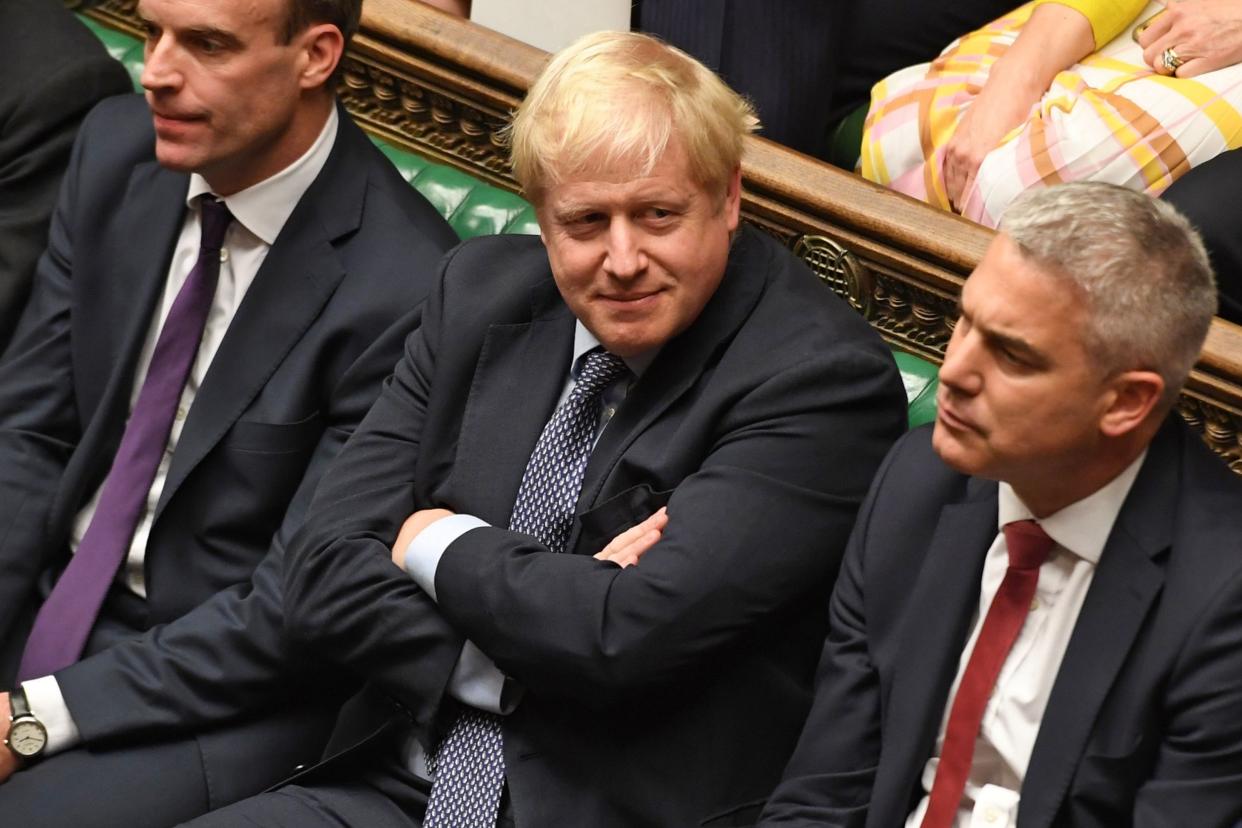Brexit: What is the Withdrawal Agreement Bill and will Boris Johnson’s deal be approved?

MPs will be voting this evening on whether they support the principle of the EU (Withdrawal Agreement) Bill, known as the WAB, to take us out of the European Union. If they vote for it, they will then debate it in detail and discuss amendments to it. But what is in it?
EU law will apply in the transition period
After we leave the EU, we will go into limbo, known in the bill as the implementation period (IP), although everyone calls it the transition period, which lasts until December 2020.
During this period nothing will change, except that the UK will no longer be a member of the EU. The bill makes this explicit: the European Communities Act, which puts the obligations of membership in British law, will continue to apply.
The controversial bit is that any changes in EU law during the transition period will also apply to the UK. Theresa May used to say, when she was asked about this, that it wouldn’t matter because it takes so long to make EU laws that there is nothing coming down the conveyor belt that we don’t know about.
Parliament must approve an extension to the transition period
The withdrawal agreement provides for the transition period to be extended by agreement by up to two years, to the end of 2022. The decision to extend must be agreed by the end of June 2020.
The bill gives parliament a say if the UK government decides to ask for an extension. But many MPs are worried that Boris Johnson wouldn’t ask for one, opening a “trapdoor” to a delayed no-deal Brexit if there is no trade deal with the EU in place by the end of 2020.
So expect an amendment, if the WAB passes second reading, along the lines of the Benn Act, to require the government to seek an extension to the transition period if a trade deal has not been negotiated by December 2020.
Protection of workers’ rights seems weak
There is a section about workers’ rights in the non-binding political declaration that accompanies the withdrawal agreement. The withdrawal agreement requires the UK government to negotiate the long-term trade deal with the EU on the basis of the political declaration, and the WAB says that, if ministers propose to reduce standards of worker protection below EU standards, they have to make a statement to parliament saying so. No, that is not exactly a copper-bottomed guarantee.
Equally, if the EU legislates for new workers’ rights, the government must report to parliament, saying whether it intends to match them.
Parliament will have a say over trade deal negotiations
The bill gives parliament control of the negotiating mandate for the long-term trade deal with the EU (the “future relationship” in the jargon). It says ministers may not engage in negotiations unless a statement of objectives has been approved by the House of Commons, and that ministers “must seek to achieve” those objectives.
The bill authorises payment of the exit settlement
It does not say how much it is, not least because that will depend on whether the transition period is extended or not. It was widely reported as £39bn, but changing exchange rates reduced it a bit, and delaying Brexit since March meant we carried on paying contributions as a member state, and will pay less for a shorter transition period.
There is a ‘parliamentary sovereignty’ clause
The bill includes a clause that begins: “It is recognised that the parliament of the United Kingdom is sovereign.” This is persiflage designed to keep the sillier Eurosceptics happy. They do not like the continuing application of EU law during the transition period, or the eight-year phase-out of European Court of Justice jurisdiction over some EU citizenship questions.
The final vote on the bill will be conclusive
The bill replaces the need for a separate “meaningful” vote by parliament on whether to leave the EU. It also overrides the provision in the Constitutional Reform and Governance Act 2010 for a 21-day cooling-off period before approving an international treaty (which is what the withdrawal agreement is).
That means that the final vote in the Commons on the bill will be the conclusive one. That will probably be the vote on third reading, which Boris Johnson wants to happen on Thursday, but it may well be later if the government loses control of the timetable – and there could still be votes after that if the House of Lords passes amendments, which the Commons would then have to consider.
Read more
The referenda system in the UK is deeply flawed, as Brexit shows

 Yahoo News
Yahoo News 
